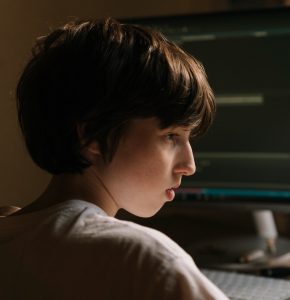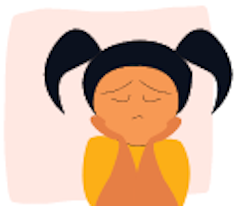The Pandemic’s Toll on Children With Special Needs and Their Parents
 Missing social contacts and altered routines, disturbed sleep and eating habits can be particularly intense for the kids with developmental challenges.
Missing social contacts and altered routines, disturbed sleep and eating habits can be particularly intense for the kids with developmental challenges.
Many children had academic and social issues being at home, but “for kids with developmental challenges, the challenges got exacerbated by Covid,” said Dr. Marilyn Augustyn, a developmental and behavioral pediatrician at Boston Medical Center and professor of pediatrics at Boston University School of Medicine. Some children aren’t getting their therapy, some miss being in the classroom, and some parents decided to stop medications, or couldn’t get refills.
Dr. Jenny Radesky, a developmental behavioral pediatrician who is an assistant professor of pediatrics at Michigan Medicine C.S. Mott Children’s Hospital in Ann Arbor, said, “some children were showing angry outbursts, intense crying episodes, signs they were emotionally dysregulated.”
“I’m seeing a lot of stalling of developmental progress,” said pediatrician Dr. Eileen Costello, the chief of ambulatory pediatrics at Boston Medical Center.
Dr. Radesky said, “Teachers are a huge attachment for kids, especially when teachers really get it, really click with kids.” There is so much more contextual social information when children are in the classroom, she said, and that matters even more for children who struggle with social interactions.
“Parents are utterly burned out,” Dr. Costello said. “The toll this is taking on both kids and parents cannot be underestimated.” Sleep-wake cycles are off, she said, programs and camps are canceled — including the camps that are designed to help keep kids with special needs from losing the progress they’ve made over the course of the summer.
“I’m getting more requests for medication even from parents who traditionally were reluctant to medicate their kids,” she said.
The general advice to parents is to build as much structure and consistency in as possible; these tend to be children who really do better with set times for sleep and for meals, for activities and therapies and learning.
Many school programs do offer some kind of summer catch-up or reinforcement, which can be a way for children to maintain a little remote social contact. And looking forward to next year, Dr. Radesky said, parents need to build on what they’ve witnessed at home.
For many children, the emotional issues and anxieties manifest in sleeping problems and eating problems.
Dr. Costello said, “Kids tell me in the office, I miss my friends, even kids who are quirky, for whom going to school is being around other kids, whether they’re their friends or not.”
Parents can look for online social opportunities, which may be available through parent advocacy and support groups, if not through schools. Even socially distanced contacts may help children feel a little more connected.
“There are some children who, just a little bit of social time online seems to be meeting their needs right now,” said Dr. Mark Bertin, a developmental pediatrician in Pleasantville, N.Y., who wrote in May about the demands that the pandemic put on parents of children with special needs. “Some kids with more significant disabilities, their only social life is going to school, and that’s a very hard gap to bridge.”
Excerpted from “The Pandemic’s Toll on Children With Special Needs and Their Parents” in The New York Times. Read the full article.
Source: The New York Times | The Pandemic’s Toll on Children With Special Needs and Their Parents, https://www.nytimes.com/2020/07/27/well/family/children-special-needs-pandemic.html | © 2020 The New York Times Company
To schedule an evaluation or to get advice about your child’s challenges, call or email a CHC Care Manager at 650.688.3625 or careteam@chconline.org




